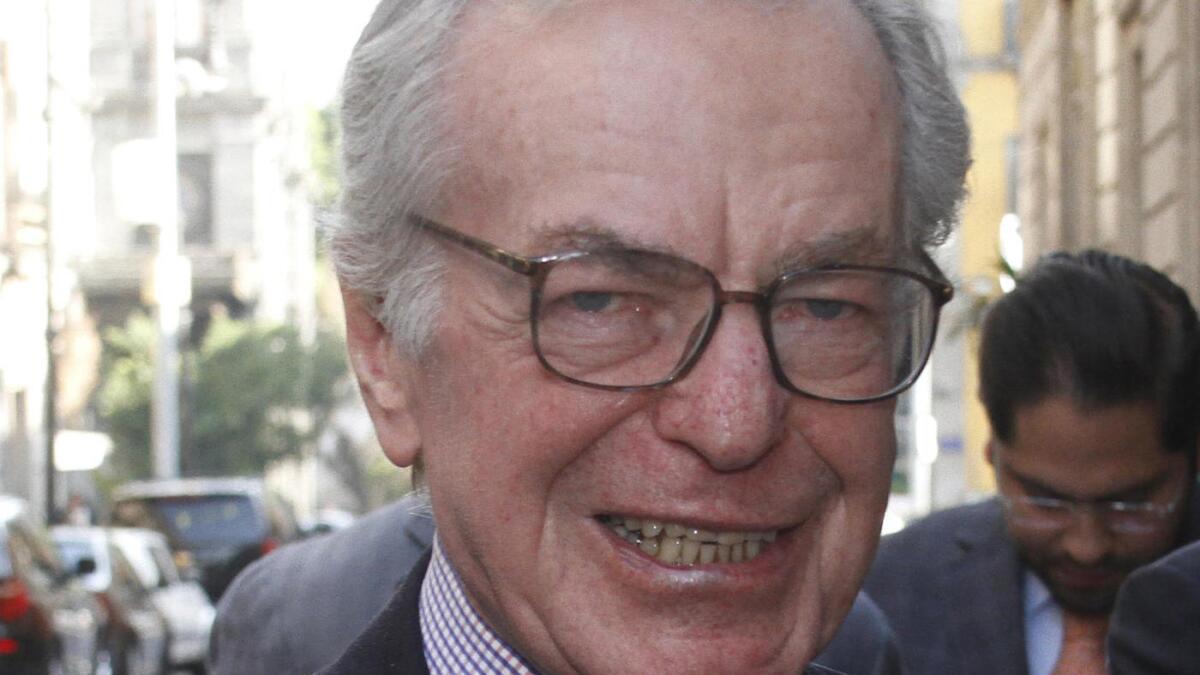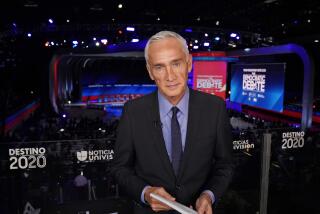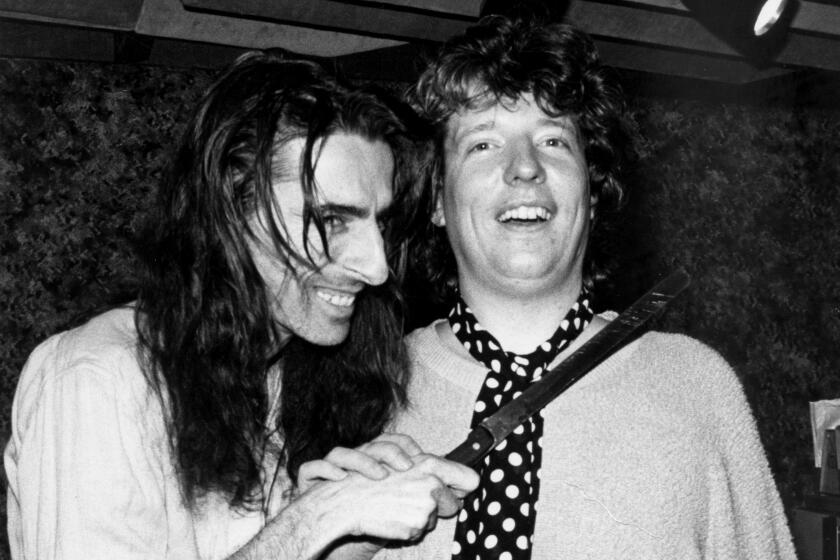Jacobo Zabludovsky dies at 87; pro-government TV news anchor in Mexico

Jacobo Zabludovsky anchored Mexico’s most-viewed evening news program for nearly three decades, until 1998, covering the nation’s biggest stories while reflecting a solidly pro-government political line.
- Share via
Jacobo Zabludovsky, a rail-thin newsman with a booming voice who became famous as the face of TV news in Mexico but was equally well known to his critics as an apologist for the government, has died. He was 87.
His former network, Televisa, said his death Thursday was caused by a stroke.
Zabludovsky anchored Mexico’s most-viewed evening news program for nearly three decades, until 1998, covering the nation’s biggest stories while reflecting a solidly pro-government political line. In his second career as host of a radio news program, he adopted a more independent stance.
To millions, he was known simply as “Jacobo,” an unflappable presence in his trademark square glasses.
In 1997, The Times described him as “the voice of Televisa, and thus of the government.”
“He led the network’s harassment of opposition parties,” The Times said, “focusing especially on the center-left Party of the Democratic Opposition (PRD) and its leader, Cuauhatemoc Cardenas, during his two presidential campaigns.”
One of the darkest chapters of his professional history came in the 1988 presidential elections, which pitted upstart Cardenas against Carlos Salinas of the long-ruling Institutional Revolutionary Party, the PRI. Salinas eked out a narrow victory many claimed was the result of fraud.
Zabludovsky’s program, “24 Horas,” gave Salinas 141 minutes of total coverage over a 2-1/2-month period; the program gave Cardenas about nine minutes.
In 1994, the PRI candidate Luis Donaldo Colosio was assassinated in Tijuana. Zabludovsky and his network gave each of the other eight candidates time to express their condolences over the phone, airing each of their photos in turn. As Cardenas spoke, however, the network ran footage of the assassination and Colosio’s bloody body instead of Cardenas’ picture.
Toward the end of his career, Zabludovsky said he had been under constant pressure from Emilio Azcarraga Milmo, the owner of Televisa and a PRI loyalist.
“There were certain institutions he would not touch,” he told the New York Times in 1998. “He supported the PRI and said it publicly. I had to follow the directives I received from the president of the company.”
Born May 24, 1928 in Mexico City, Zabludovsky started his career in the early days of Mexican TV. In 1950, he became a writer on Mexico’s first national news show. Twenty years later, he was at the helm of “24 Horas” (“24 Hours”), the nation’s top-rated evening news broadcast.
In 1959, Zabludovsky interviewed Fidel Castro as the guerrilla leader rolled into Havana.
In Mexico’s 1985 earthquake, Zabludovsky chronicled the devastation on radio after Televisa’s central studios collapsed, killing more than 90 of his colleagues. When government spokesmen tried to downplay the scope of the quake that took thousands of Mexicans’ lives, Zabludovsky refused to go along, according to the New York Times.
Years earlier, though, he was widely reviled, along with most of the rest of the country’s press, for downplaying the 1968 army massacre of students in Mexico City’s Tlatelolco square.
By the time Zabludovsky left Mexico in 1986 to head what was then the only Spanish-language network newscast in the U.S., his ratings had weakened and journalists had become more independent. More than 20 staffers connected with the Miami-based Spanish International Network left their jobs to protest Zabludovsky’s hiring. Six months later he was back at “24 Horas.”
In his later years, Zabludovsky revived his reputation among many with a brisk, folksy daily radio news broadcast in which he gave significant space to anti-government figures, and as a campaigner for cleaning up the historic center of Mexico City.
He is survived by three children and his wife. His brother, noted architect Abraham Zabludovsky, died in 2003.
More to Read
Start your day right
Sign up for Essential California for the L.A. Times biggest news, features and recommendations in your inbox six days a week.
You may occasionally receive promotional content from the Los Angeles Times.







